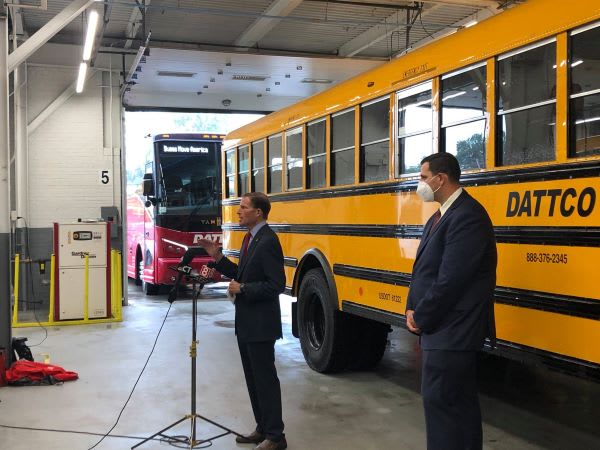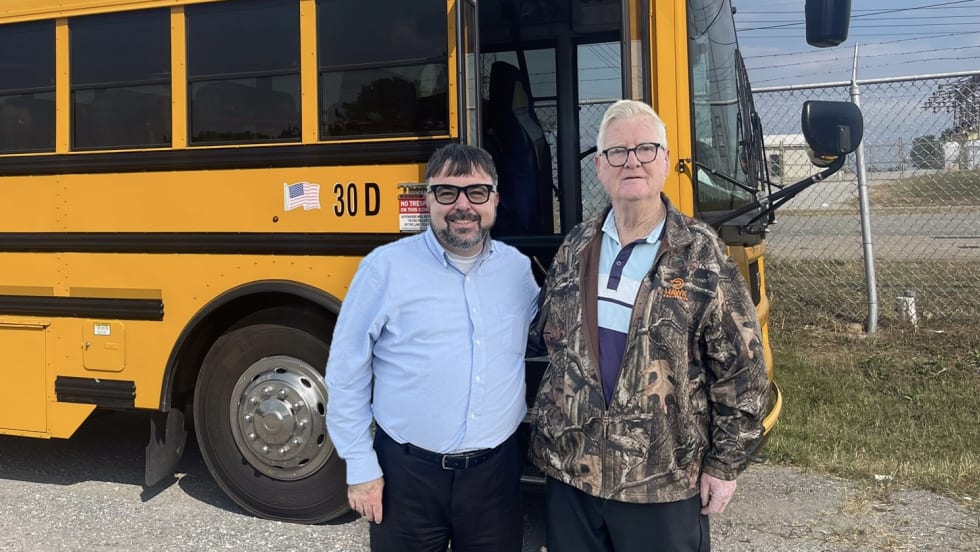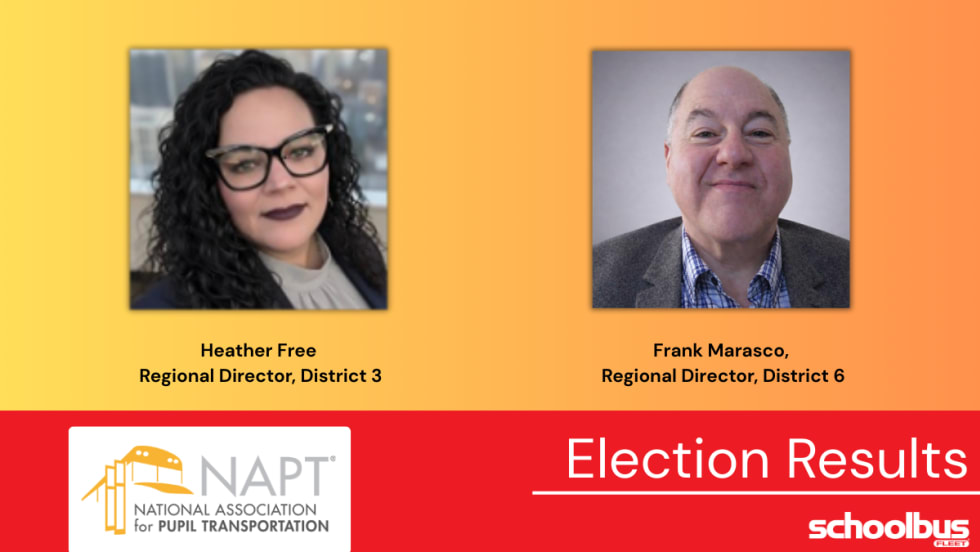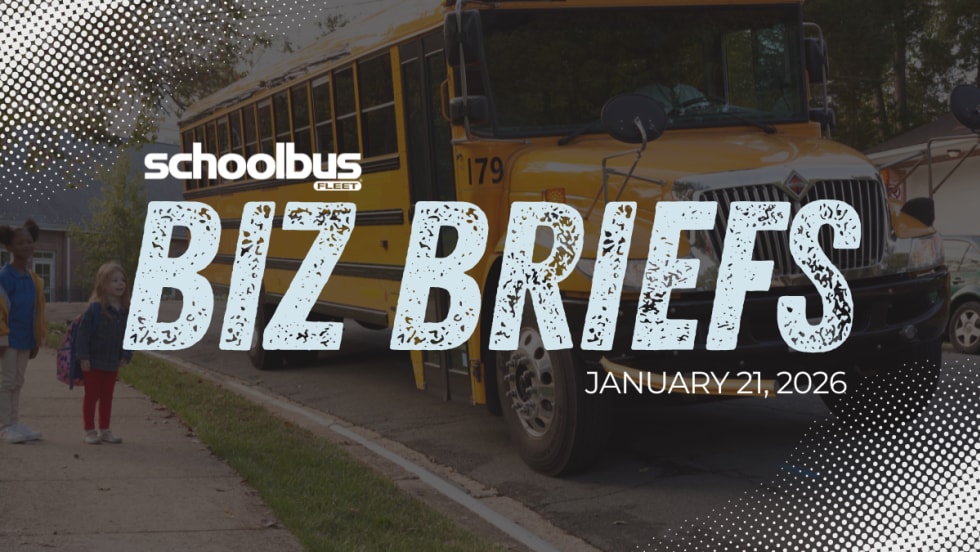U.S. Sen. Richard Blumenthal visited passenger transportation company DATTCO Inc. in Connecticut on Wednesday to discuss working to pass legislation to help provide financial relief to bus and motorcoach companies hit hard by the COVID-19 pandemic.
As Metro magazine previously reported, the Coronavirus Economic Relief for Transportation Services (CERTS) Act would provide $10 billion in emergency economic relief funding, in the form of grants — no less than 50% of total funding — and other economic assistance, through the Department of the Treasury, to motorcoach operators, school bus companies, U.S. flag passenger vessel operators, and other U.S. transportation service providers designated by the Secretary of the Treasury in consultation with the Secretary of Transportation.
Blumenthal, a cosponsor of the bill, which was introduced into the U.S. House of Representatives in July and sponsored by Rep. Darin LaHood, said in the press conference held at DATTCO’s headquarters in New Britain, that Congress must pass the CERTS Act when it returns this week.
He noted that the issue is a national one “because bus and motorcoach transportation are vital to our economy,” and that the relief provided by the bill is essential to the industry’s survival, the New Britain Herald reports.
“These private bus and motorcoach companies are hanging by a thread because of the uncertainty of the economy, the overhead expenses they face and the need to keep together their workforce,” Blumenthal added, according to the newspaper.
The press event was organized in concert with Blumenthal’s local office to raise awareness about the industry’s struggles and his support for the legislation, Kyle DeVivo, the assistant vice president of sales for DATTCO, told School Bus Fleet.
Once the pandemic hit in March, he added, DATTCO reached out to Blumenthal’s office almost immediately and has been communicating with him on the issue ever since.
“[Blumenthal] has been a big supporter of funding for [the school bus and motorcoach] industries since it became apparent how deeply the pandemic would impact us,” DeVivo said. “He is a leader in supporting the CERTS Act specifically, along with Senators [Jack] Reed and [Susan] Collins.”
In particular, the bill would benefit school bus and motorcoach companies, DeVivo said, by allowing them to get caught up on capital equipment expense and debt service related to vehicle payments.
"Most companies have received generous deferrals from their banking institutions, but the debt will come due eventually,” he added. “With many operators having zero revenue for almost six months, these grants are vital to ensuring operators can get on level footing financially.”
Additionally, the bill includes insurance as an expense eligible for grant funding.
“Passenger carriers are required by FMCSA to have at least $5 million in insurance coverage, and to maintain that, companies must keep paying premiums to maintain their operating authority,” DeVivo explained. “Insurance providers have provided some relief, but those expenses have continued to accrue even despite some operators not running a single vehicle since March.”
The legislation also gives operators an opportunity to maintain their highly specialized workforces of drivers and mechanics through at least Dec. 31.
“If they are forced to find new jobs elsewhere, building back up the supply of CDL drivers, which was already facing a major shortage prior to COVID, will be all but impossible,” DeVivo said.
Schools began in-person instruction in Connecticut last week, but many districts have begun opening schools this week after the Labor Day holiday. In preparation, DeVivo said, DATTCO gave all its drivers a personal protective equipment (PPE) kit, which includes five machine washable cloth masks, gloves, protective eyewear for when they are cleaning and disinfecting), wipes, and EPA-approved disinfectant spray to wipe down high-touch areas on the vehicle at the end of their run or shift.














